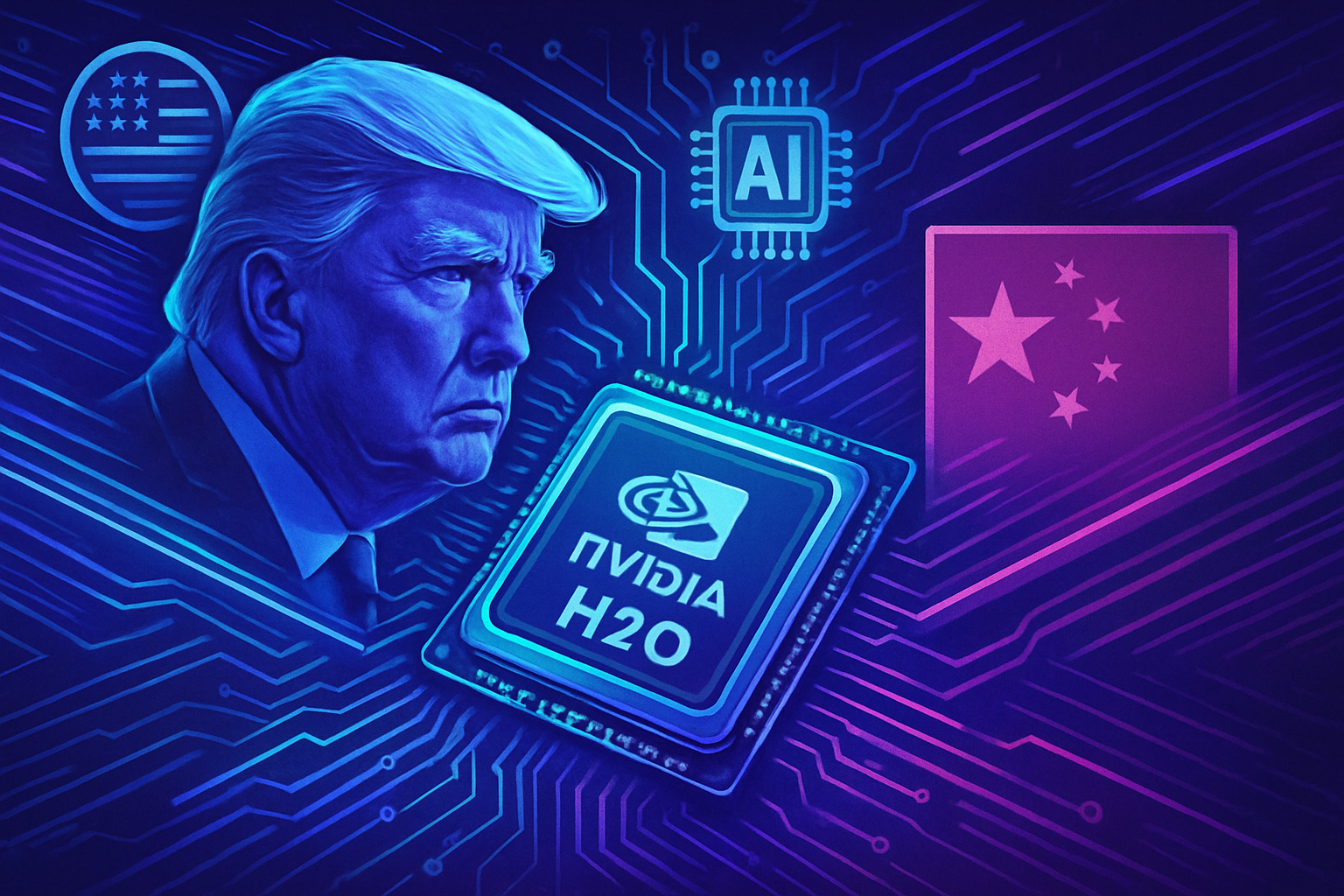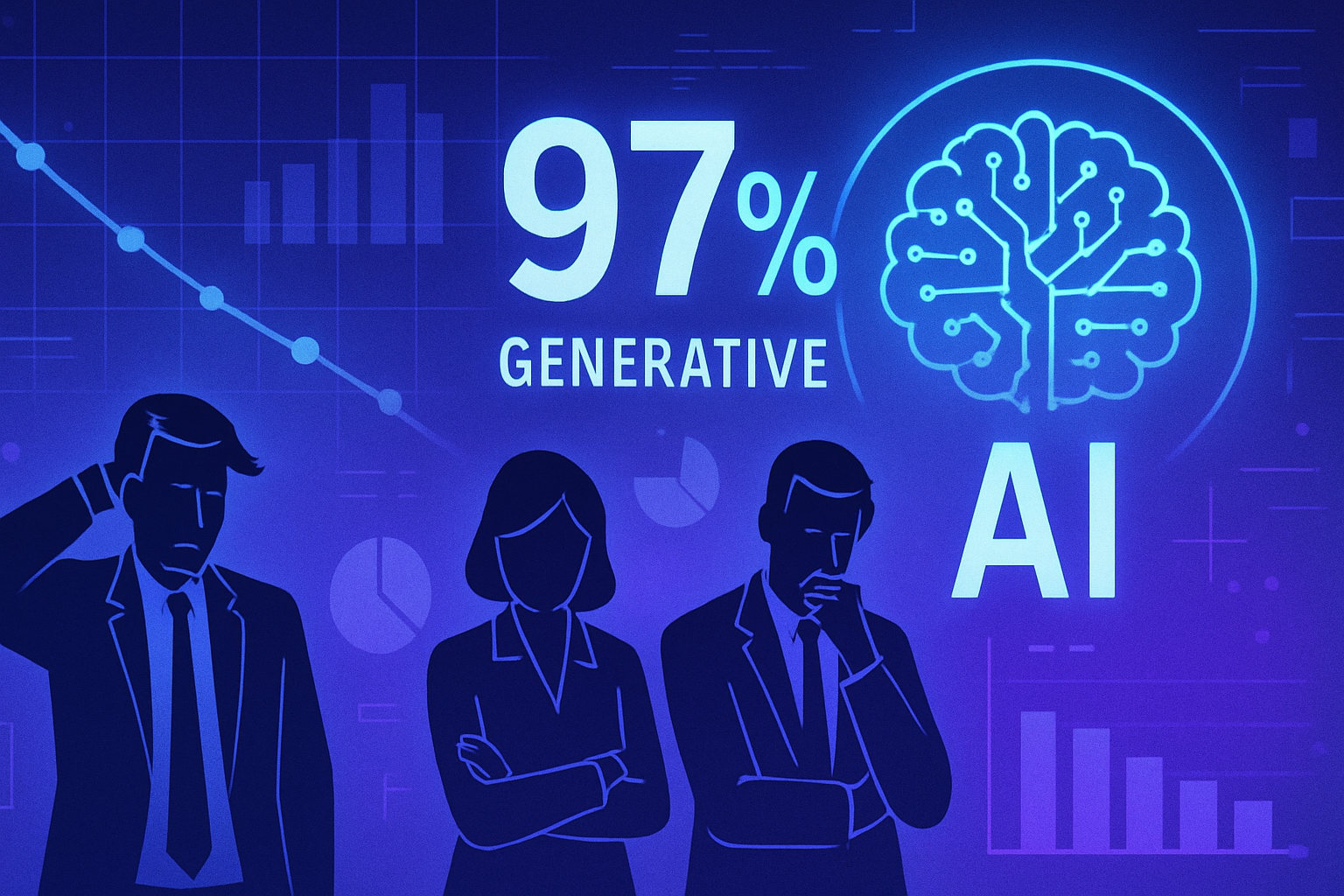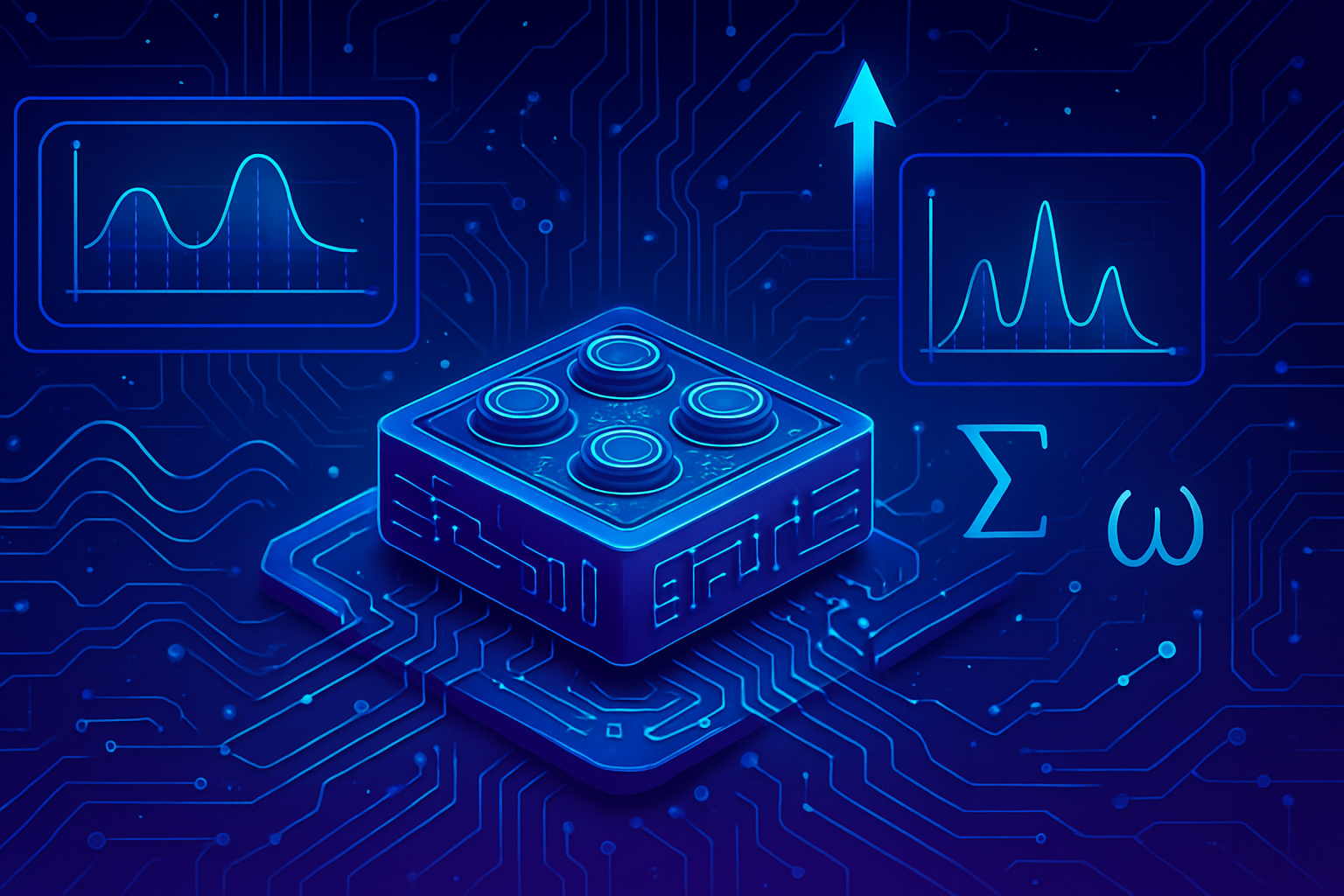The H20 chip from Nvidia represents a decisive advance in the intensified technological rivalry between the United States and China. Here, artificial intelligence constitutes a significant economic and military issue. Donald Trump, through his strategic choices, shocked the world by bolstering Nvidia’s position in the Chinese market. The debates surrounding this chip engulf national security issues, while China stands as a competitor capable of eclipsing technology giants.
The H20 Chip: A Strategic Issue
The H20 chip from Nvidia stands as a centerpiece in the technological rivalry between the United States and China. This processor, designed by the American company Nvidia, allows for exceptional computing performance, essential in the field of artificial intelligence (AI). This confrontation has taken a significant turn with Donald Trump’s approach, who imposed a tax on sales of the H20 chip destined for China.
The Geopolitical Context
Restrictions on technology exports have intensified since Joe Biden banned, in October 2022, the export of Nvidia chip models to China. The United States’ demand is driven by national security concerns, aiming to prevent any Chinese rise in the military AI sector.
The Decisions of Donald Trump
In 2024, Nvidia announced the creation of the H20, a model tailored for a Chinese market subject to restrictions. In April 2025, Trump imposed limitations on its export, before reversing course the following month, allowing the company to resume its sales. This turnaround reveals financial and strategic motivations.
The Economic Implications
The 15% tax on revenues from H20 sales to China represents a substantial source of income for the U.S. government. By 2024, the Chinese market had already accounted for 13% of Nvidia’s sales, highlighting the magnitude of financial stakes. This policy shift reflects both a quest for immediate profits and a desire to maintain the technological leadership of the United States.
China’s Response
Chinese authorities, aware of the dimension of this rivalry, reacted by raising concerns about security issues. At the end of July, China summoned Nvidia, citing potential risks related to hidden geolocation functions in the chips. In response, Beijing urged its companies to favor local solutions.
The Impact on the AI Market
The recent maneuvers by the United States reflect a genuine change in strategy. The goal is to keep China dependent on American technologies while maintaining restrictions on the most advanced chips. This situation raises questions about the future evolution of technological relations between the two nations.
The Vigilance of the Technology Community
Experts emphasize the importance of adopting realistic and evidence-based policies regarding technology and security. The outcomes of such an approach will determine not only the future of companies like Nvidia but also the overall dynamics of the ongoing technological war.
Recent events illustrate how complex and multidimensional the struggle between the United States and China in the field of AI has become. The implications of this rivalry extend far beyond economic and technological borders, touching on issues of national sovereignty and global security.
For now, the technological war continues to escalate, marking the global economic landscape a little more each day.
User FAQ on Nvidia’s H20 Chip
What is Nvidia’s H20 chip and what is its importance in the geopolitical context?
The H20 chip is a model of processor developed by Nvidia, essential in the race for artificial intelligence. Its computing power allows it to play a strategic role in the technological rivalry between the United States and China.
Why did Donald Trump decide to tax H20 chip sales to China?
Trump imposed a 15% tax on H20 chip sales to strengthen his position in the technological war against China while ensuring revenues for the U.S. government.
How does the H20 export strategy affect China’s dependence on American technology?
By reviving H20 sales, the United States aims to keep China dependent on the Nvidia ecosystem, preventing it from accessing the most advanced chips while allowing it to continue using less powerful technology.
What is the link between the restrictions imposed by the United States and China’s own chip production capacity?
U.S. restrictions on the export of cutting-edge chips have pushed China to develop its own models, increasing its self-sufficiency and competitiveness in artificial intelligence.
What measures is China taking in response to the export of the H20 chip?
China has expressed security concerns, demanding guarantees that the chip does not contain surveillance functions. Additionally, it encourages its companies to prioritize local solutions over the H20.
What is the difference between the H20 and the H100 and H200 chips that Joe Biden banned?
The H20 chip is a less powerful version specifically designed for the Chinese market, while the H100 and H200 models are highly advanced processors banned from export for national security reasons.
How could the taxation of H20 sales influence Nvidia’s position in the global market?
The taxation should not harm Nvidia’s position as a global leader, as it allows the company to continue marketing its products while generating revenue for the government.
What long-term impacts could the competition between the United States and China in the field of AI have on the global technology sector?
The rivalry between the United States and China could lead to technological fragmentation, where each country seeks to establish its own standards and technologies, thus influencing the global technological landscape and supply chain.






